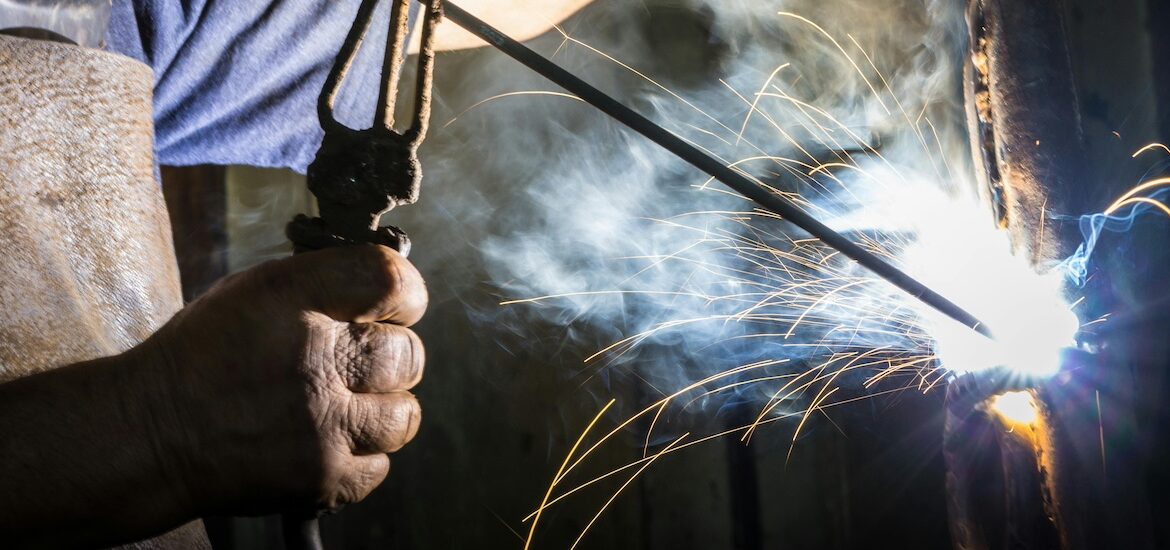He Was a Union Pipefitter. Now He’s a National Scholarship Finalist and Business Founder. Earning a construction management degree can do more than advance a career—it can expand how professionals lead, innovate and influence their industries. For Autie Ascenzi, a union pipefitter turned entrepreneur and national scholarship finalist, completing his bachelor’s degree in construction management […]
alumni success
More Than a Degree: Winslow Teachers Reflect on Rowan’s Lasting Impact
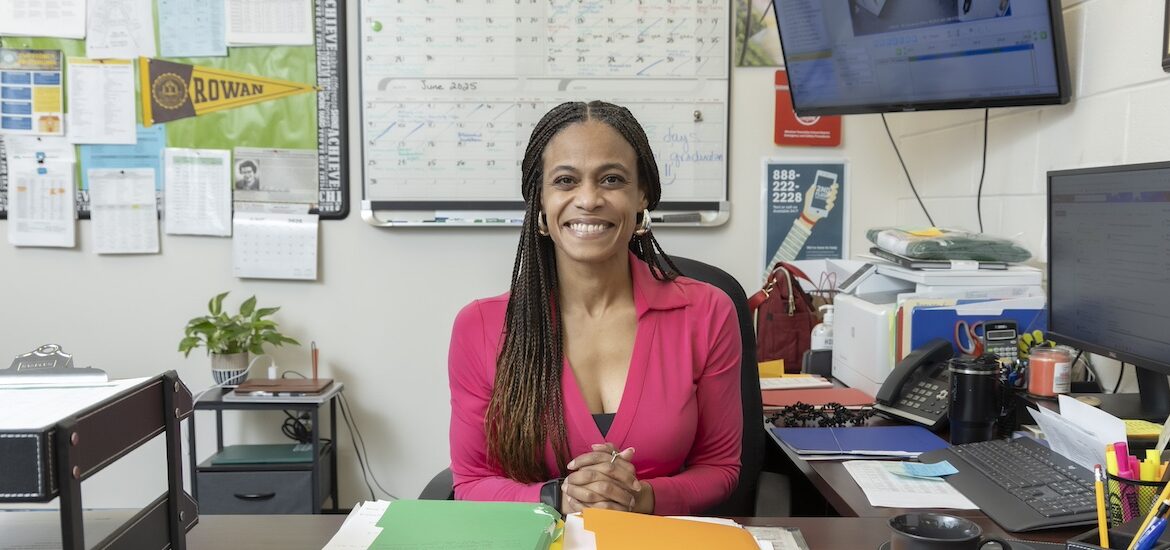
At Winslow Township High School, a tapestry of Rowan-influenced community exists among the educators. Located 30 minutes east from the University, Winslow Township High School employs a large number of Rowan grads. Their backgrounds, personal experiences and educational philosophies differ, but one commonality remains: they are Rowan Profs. Their Rowan experiences helped to shape them […]
How an Online Criminal Justice Grad Built Two Careers
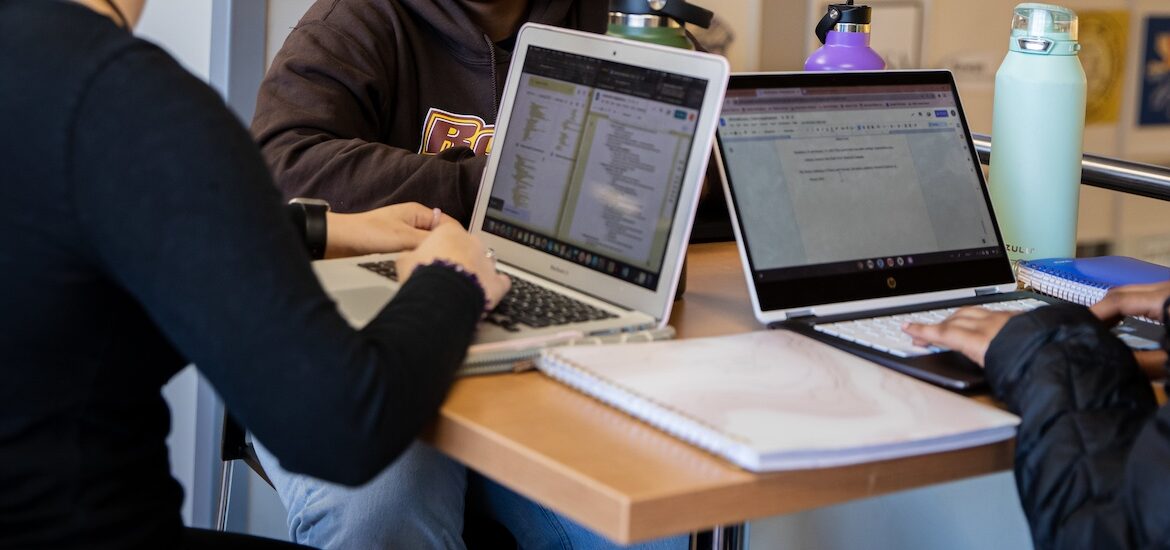
Alum applies same skillsets to dual careers as a probation officer & basketball player development coach: “Sports is a microcosm of society” A Yankees fan who lives in Phillies territory, Devón Coles is no stranger to seeing things differently. A 2021 graduate of the Law & Justice Studies program, Devón intentionally chose an online criminal […]
How Alumna Became “Nana Karen” Star of the Savannah Bananas’ Beloved Banana Nanas Dance Team [VIDEO]
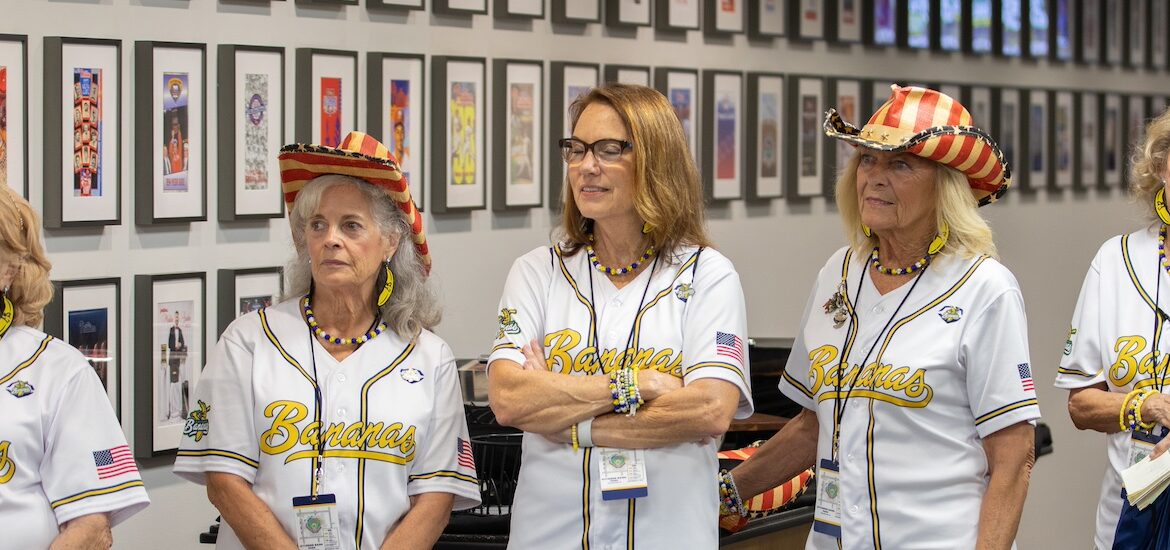
When Karen Olenick ’71 graduated from Glassboro State College — now Rowan University — she never imagined her career as an elementary school physical education teacher would one day take her to center field, performing for tens of thousands of baseball fans. Now known across the country as “Nana Karen,” Karen is one of the […]
Magician & Marketing Alumnus Made His Shyness Disappear at Rowan [VIDEO]
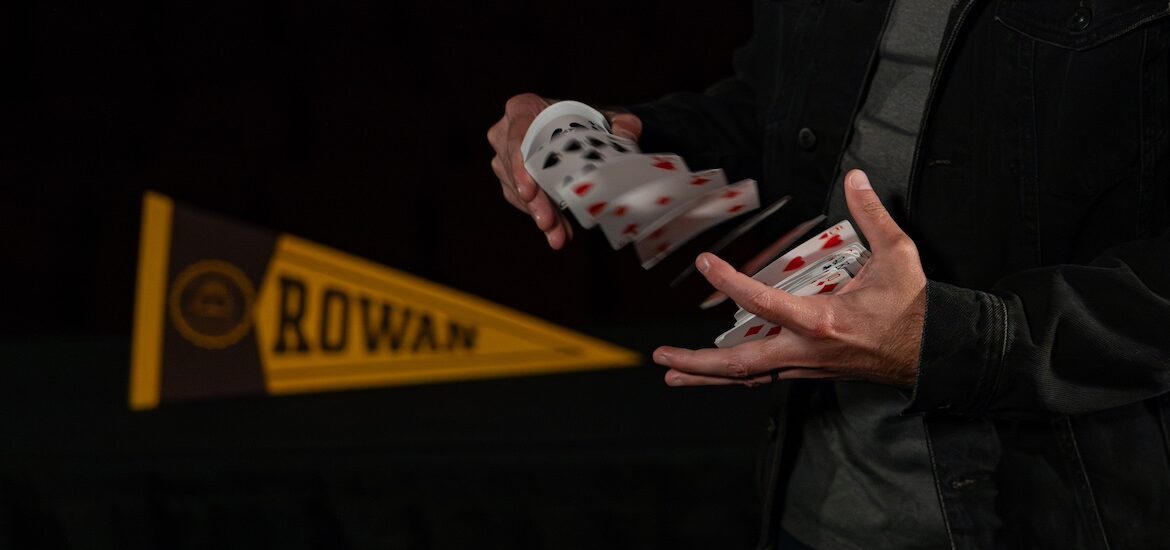
From Glassboro classrooms to Off-Broadway stages, alumnus David Corsaro ’98 has built a remarkable career blending marketing expertise with a lifelong passion for magic. His story is one of confidence, creativity and community—qualities he credits to his Rowan education. Finding Confidence at Rowan An almost universal feeling for first-year students, when David Corsaro moved to […]
From Codes to Crowd, Alum JT Kurtz Mixes Tech and Turntables [VIDEO]
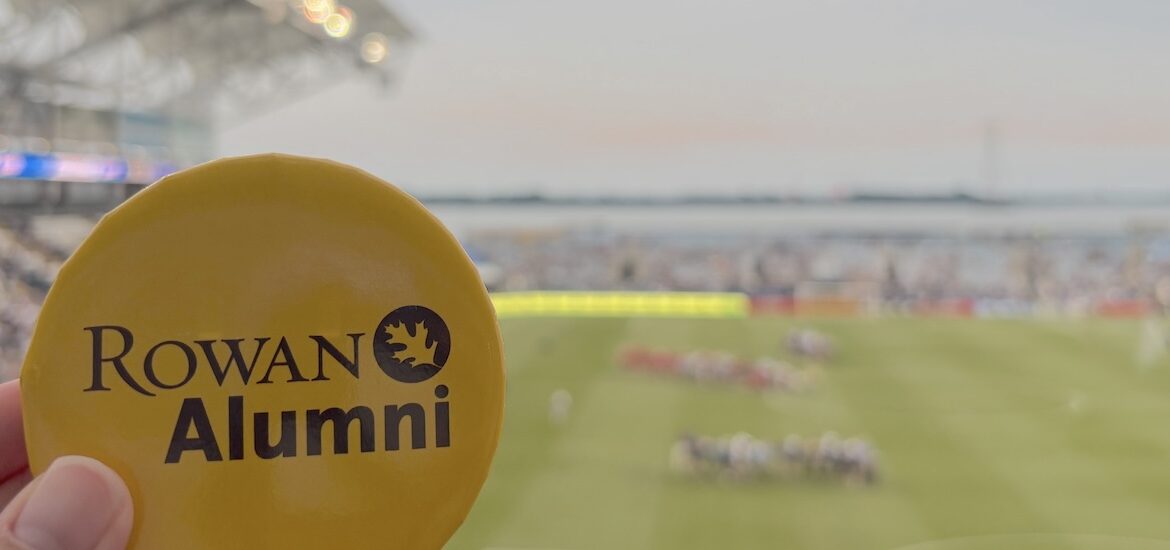
Meet JT Kurtz, a 2021 computer science graduate whose Rowan University experience helped shape both his career and his creative pursuits. By day, he works as a software developer, but by night, he is an entertainer and entrepreneur. If you’ve ever been to Subaru Park to catch a Philadelphia Union match, chances are you’ve heard […]
What Can I Do with a Psychology Degree?
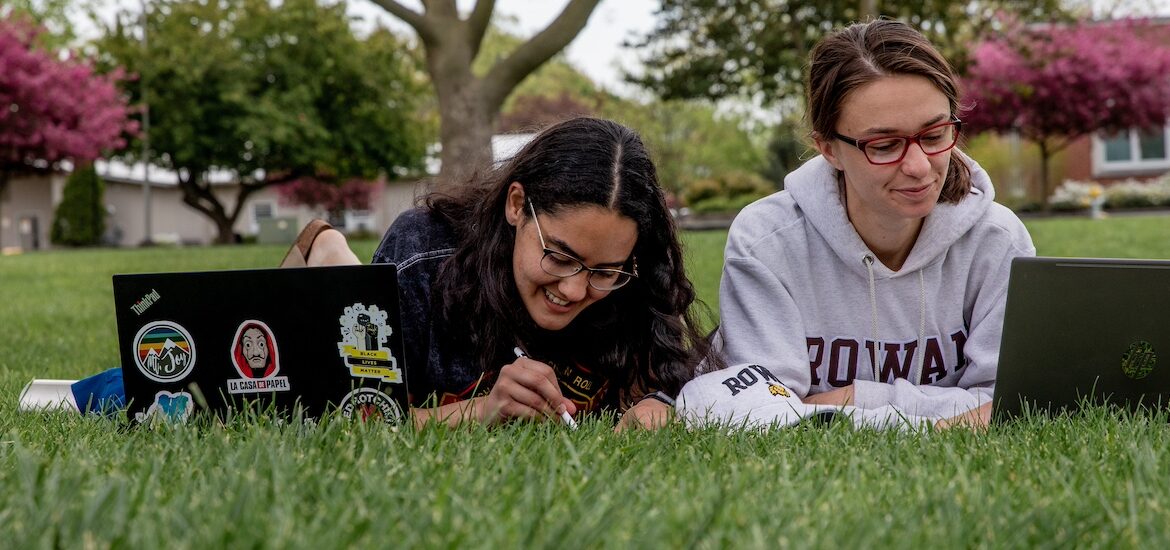
A Helpful Guide for Aspiring Psychology Majors Whether you’re fascinated by how people think, eager to help others thrive or curious about what drives human behavior, a psychology degree is a powerful way to turn curiosity into a career. This guide shares all things bachelor’s degree in psychology related: what psychology is and its various […]
Career Paths for Advertising Majors
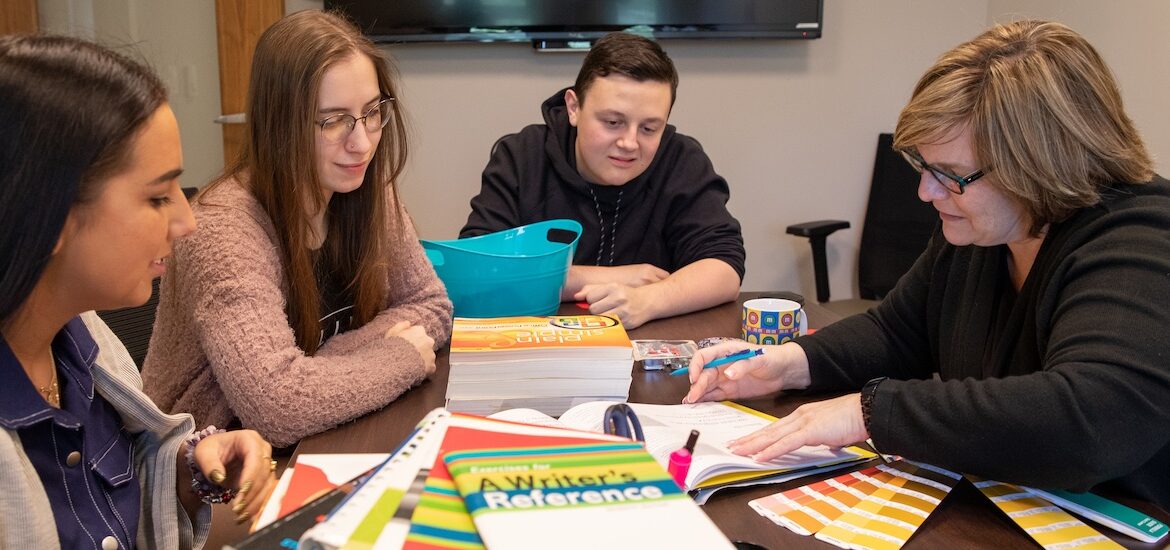
Rowan Advertising faculty & alumni answer ‘what can you do with an advertising degree?’ Long-time faculty within the advertising program at Rowan University, Professor Lou Rodolico has bridged academia and practical application within industry, for 40 years. A well-respected and popular professor, Professor Rodolico joined Rowan University in 2011 after a 27-year career as a […]
How a Rowan Alumna Turned Wellness Into a Career [VIDEO]
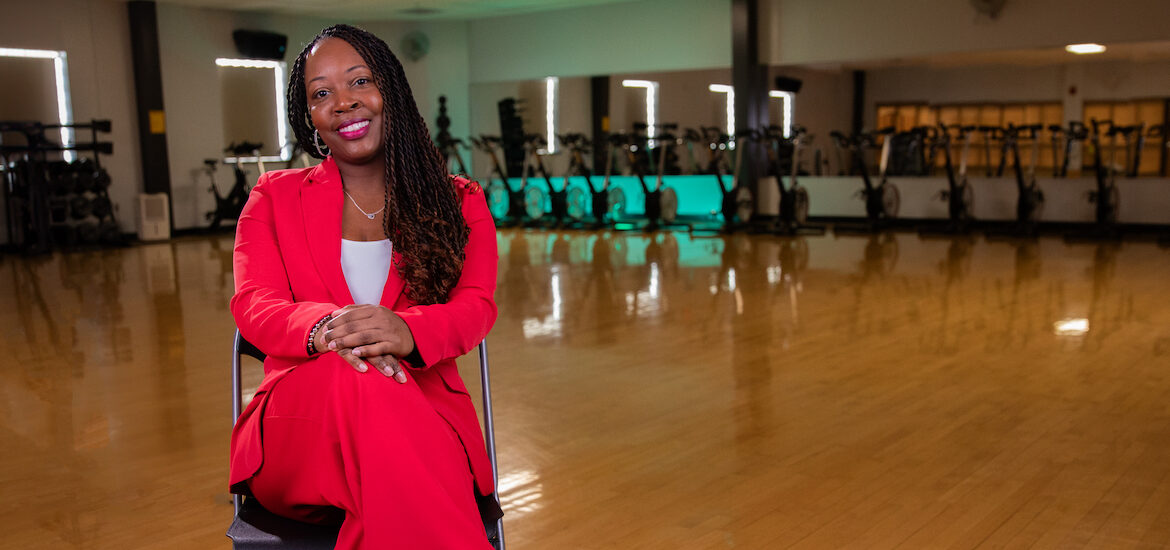
Meet Racquel Barnes, a 2002 Rowan graduate. She is here to share her story about Wellness in the Workplace, and how Rowan helped set her up for success in owning three businesses. To build an educational foundation like Racquel’s, consider a bachelor’s in wellness management or public health and wellness, or a business degree in […]
Navigating a Career in Surgery and Mentorship
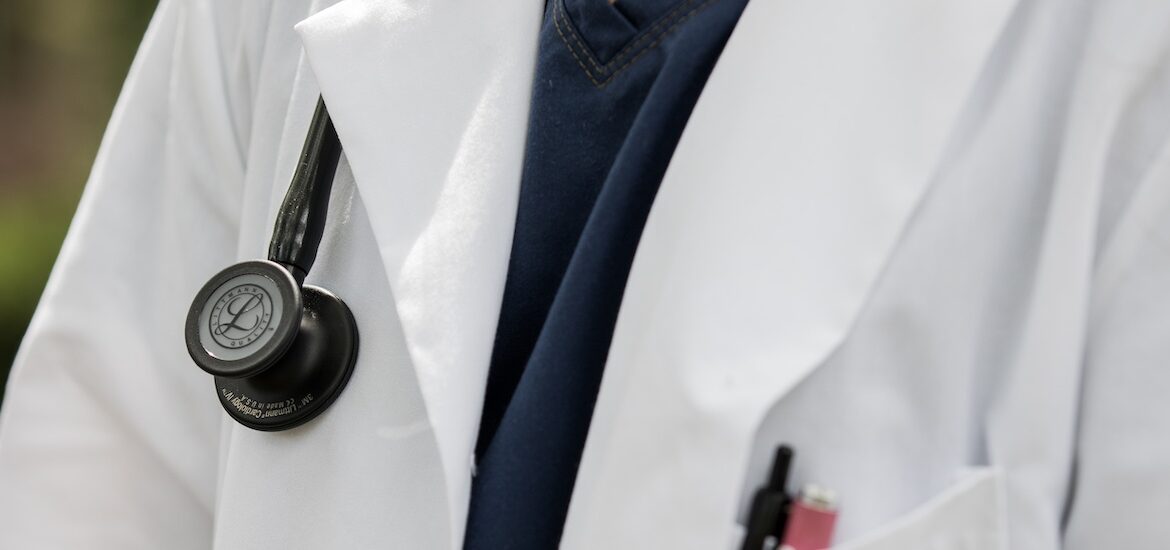
Rowan-Virtua School of Osteopathic Medicine Alumna Shares Her Story Meet Dr. Kay Yoon-Flannery, a co-director and a breast surgeon at MD Anderson Cancer Center at Cooper and an assistant professor of surgery at Cooper Medical School who graduated from Rowan-Virtua School of Osteopathic Medicine in 2011. She is here to share her inspiring journey of […]
What Can You Do With an Economics Degree?
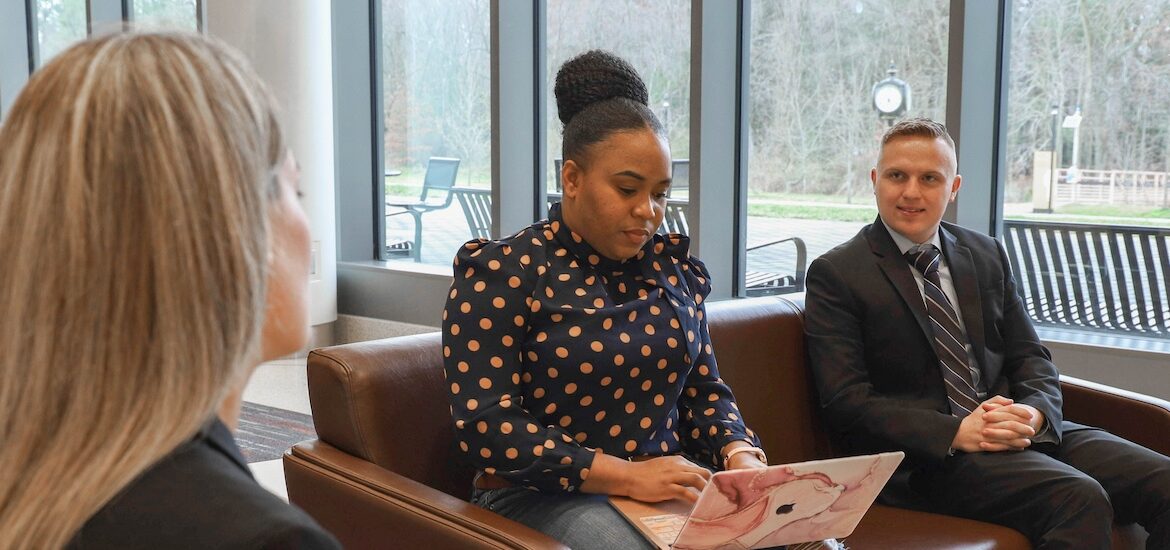
An Insightful Look Answering ‘What Is Economics?’ & Economics Major Jobs Pursuing an economics degree offers a comprehensive understanding of how societies allocate resources, make decisions and address challenges in various sectors. If you’ve ever wondered ‘what can I do with an economics degree?’, the answer is: quite a lot. This major equips students with […]
What Can You Do With a Computer Science Degree?
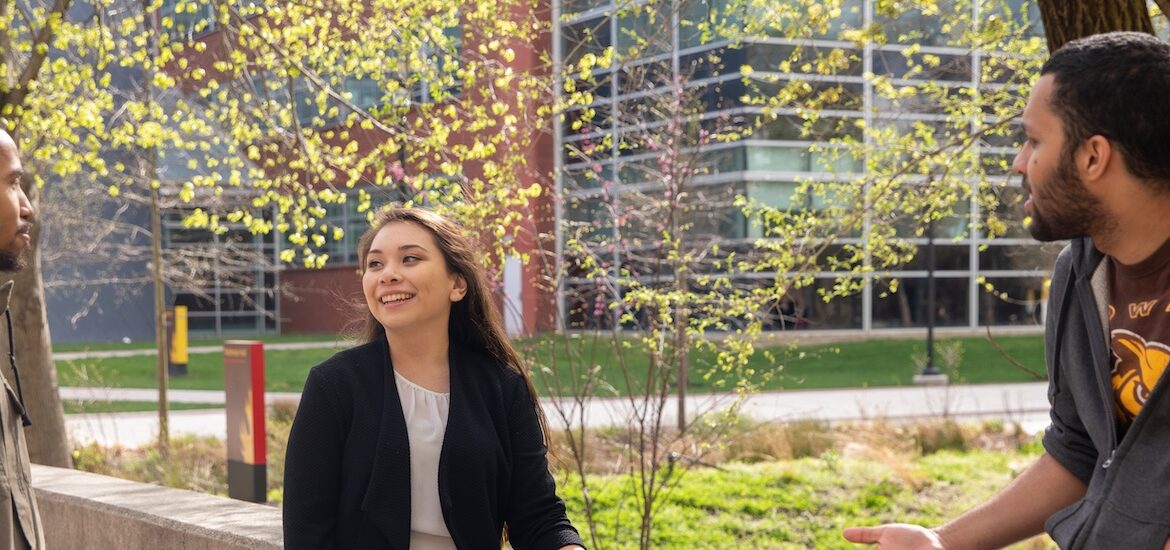
Whether you’re passionate about developing groundbreaking software, designing secure networks, or exploring artificial intelligence, a computer science degree equips you with the skills and knowledge to thrive in the ever-evolving digital landscape. This guide shares all things computer science: what the field is, what you’ll learn, what you can do, career options for computer science […]
How Sharing Books with Children Became One Man’s Mission
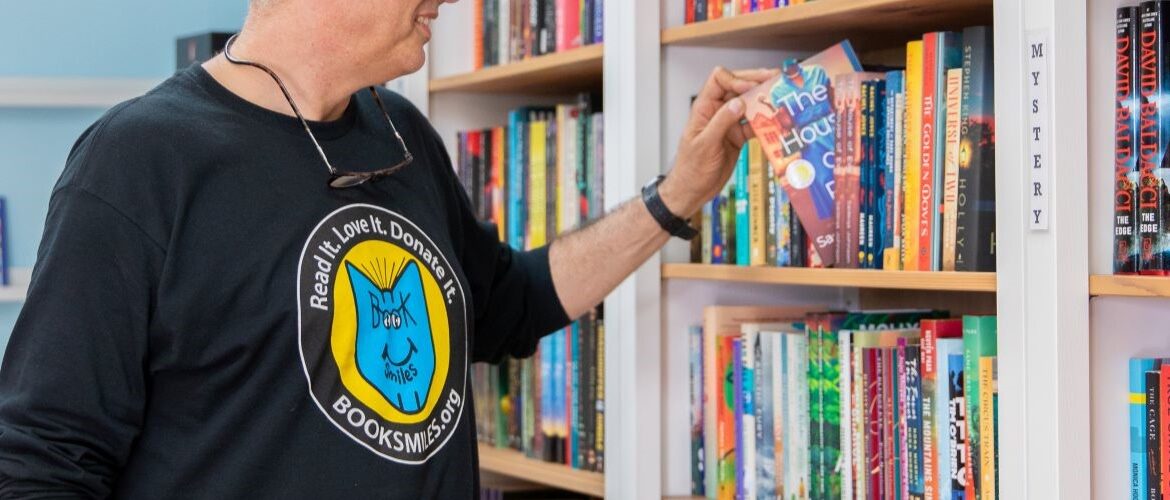
Founder of nonprofit BookSmiles has shared over 2 million books with local children Larry Abrams graduated from the College of Education’s Supervisor program in 2008, and has since gone on to found a remarkable nonprofit, BookSmiles. Here, he shares the story of how it came to be , how his experience at Rowan influenced him, […]
Alumni Success: Young Entrepreneur Megan Hilbert and Her Restaurant on Wheels [VIDEO]
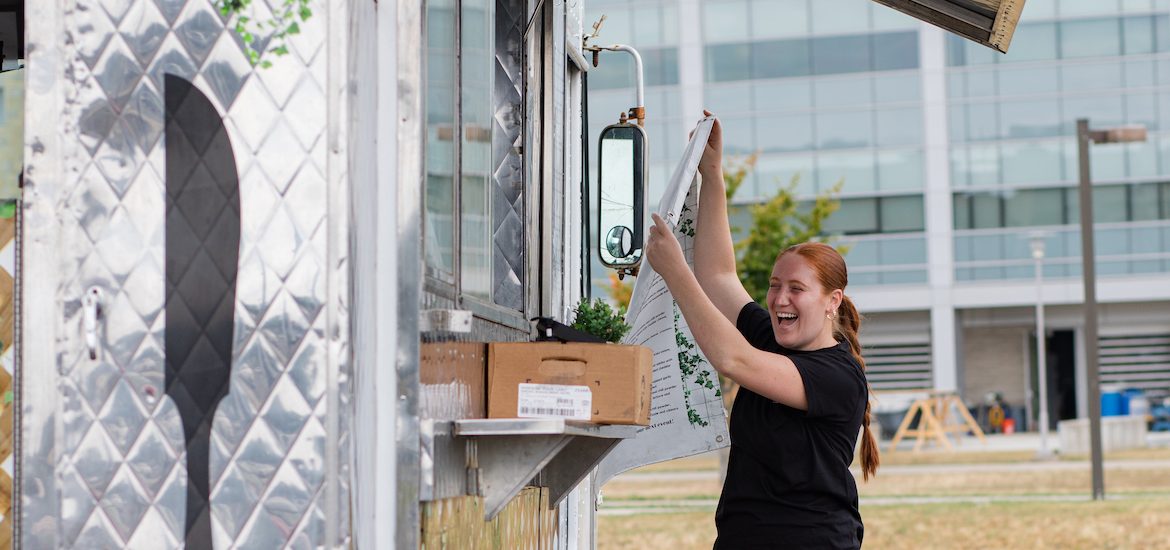
Communication Studies Alumna Leverages Her Education to Propel Her Business Idea Forward Meet 2018 Rowan University graduate Megan Hilbert, who graduated with a bachelor’s degree in communication studies and a minor in advertising. She is here to share with us her journey of starting “Red’s Rolling Restaurant” on wheels. Knowing that the program that I […]
Alumni Success: The Blending of Two Degrees

Rowan University Political Science & Communication Studies Graduate Details Launching His Post-College Career After graduating from Rowan University in 2019 with two bachelors’ degrees, one in communication studies and the other political science, Conor Schmiegel’s career would take him in a variety of directions with a variety of ebbs and flows that leverage both of […]
From Prof to Prof: The Young Professor, Matt Graifer [VIDEO]

Rowan University psychology graduate blazes his own career path For most people, combining baseball, entertainment, and an electric personality might seem impossible. But for Rowan alumnus Matt Graifer, better known as The Young Professor, it’s just another day at work. As the Chief Potassium Enthusiast (yes, that’s a real title) for the wildly popular Savannah […]
From Pro Ball Aspirations to Medical Doctor
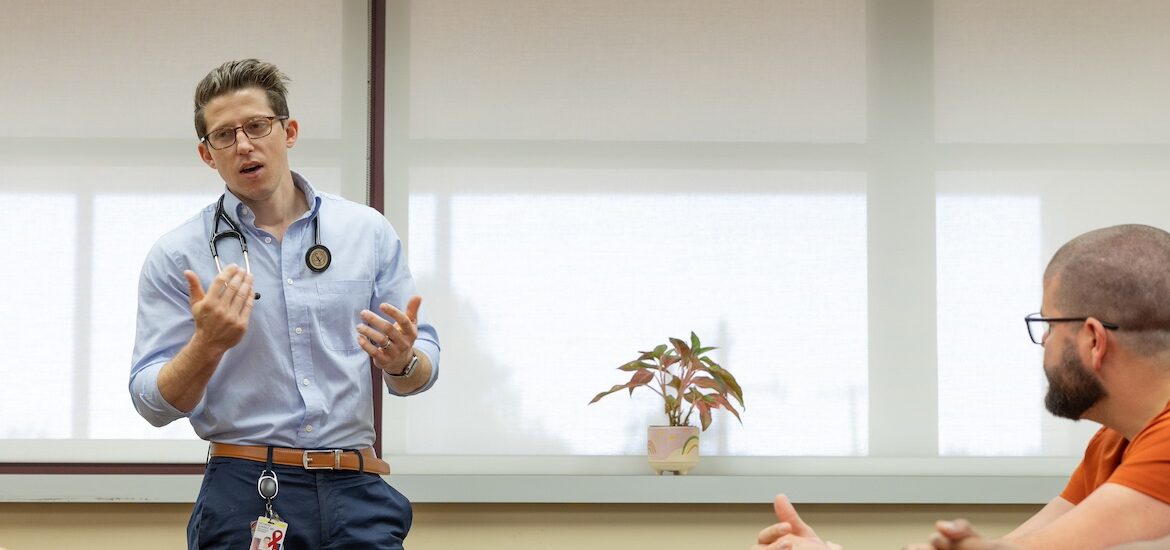
Cancer diagnosis sparked a career aspiration pivot and a newfound desire to major in Biological Sciences A Personal, and Candid, Interview with One Cooper Medical School of Rowan University Graduate Just as Richie Suarez was about to kick off his college career at Rowan University, the universe had other plans. Richie shares with us his […]
Can You Teach Someone Entrepreneurship? This Alumnus Does

From Classroom to CEO: Unveiling the Success Story of Anthony Magaraci, a Rowan Entrepreneurship Alumnus Anthony Magaraci, Entrepreneurship ‘06 alum, gives insight on his successes since graduating from Rowan’s entrepreneurship program. A member of the inaugural class of the entrepreneurship program within the William G. Rohrer College of Business, Anthony Magaraci graduated in 2006 alongside […]
Three-Time Alumnus Reflects on Rowan and Personal Growth

Tobi B. has witnessed the evolution of Rowan by first attending Rowan for his bachelor’s degree in communications in 1995, then immediately returning after graduating in 1998 to receive his master’s in public relations, before finally returning for his doctorate of education in educational leadership in 2011. During this time, he served in a variety […]
Meet the Professor Who Built Rowan’s Marching Band

Once she got to Rowan, she didn’t know that we were known to be a teaching school at that time. Her professors within the College of Performing Arts really looked out for her; they would sign her up for conducting symposiums and competitions outside of the department. “One of them was my percussion teacher who […]
Art Grad Laurie Z. Runs Funny Farm Rescue [VIDEO]

“Life happens when you’re busy making other plans,” says art alumna Laurie Z, who never intended to run a farm. Meet Laurie Z, the owner and founder of the Funny Farm Rescue and Sanctuary in Mays Landing, NJ (Atlantic County). Laurie also owns Artsy Graphics, which is a graphic design and photography company. She graduated […]
From Soccer Fields to Disney Magic: Inspiring Journey

In this alumni success story, we learn more of the career path for 2013 education alumna Miranda D. With our catching up with Miranda, a former record-breaking women’s soccer player for the University, we learn more of what came after her time here at the University, where her career has taken her, and her personal […]
Alumnus Launches Spectrum Sports for Special Needs Athletes

A glimpse into a former special education teacher’s career pivot After graduating and launching his special education career in 2011 and teaching for 10 years, alumnus Dan M. noticed a gap in available recreation and athletic opportunities for people who are a part of the special needs community. To fill the gap and serve the […]
RTF Grad Christianna A Premieres First Feature Film

With a deep desire to break the mold and the stereotype that filmmakers need to move to the West Coast for their work, young Rowan alum Christianna A. achieved her dream within two years of graduation. A 2021 graduate of Radio, Television, and Film, with a minor in Creative Writing, Christianna’s feature film “Paper Gems” […]
Kate K. on Studying Construction Management

Kate K, a construction management graduate student who works in the industry, shares her story and how Rowan helped her in her career. Kate K. is a graduate student in the construction management program. She is currently working with Churchill Construction Engineers, where she helps supervise construction projects, works with inspectors to ensure they have […]
Studio Art Grad Paige Buza Thrives as Tattoo Artist [VIDEO]

Today we feature Paige Buza, a 2019 graduate from Pennsville, NJ (Salem County) who earned her degree in Studio Art. Here, Paige tells us about her journey to becoming a tattoo artist, how her passion for art stemmed, and how Rowan prepared her for her profession. Browse Paige’s work on Instagram or visit her at […]
Entrepreneurship Expo Pitch Fueled Shears Hair Studio

Editor reviewed & updated October 2025. Julian Doroteo, a first-generation college student and 2022 alumnus from Bridgeton, NJ (Cumberland County), graduated with an entrepreneurship degree from the School of Innovation & Entrepreneurship within the Rohrer College of Business. As a student, Julian pitched his business idea at the New Venture Competition & Expo, which ultimately […]
Connor S. From Student to Political Operative

A proud graduate from both the Political Science and Communication Studies departments, Connor S.’s segue from student to professional illustrates the impact of leveraging classroom learning, internships and networking to successfully launch a career. As a young grad from the local Gloucester County, NJ, area, having graduated four years ago, Connor’s story shows how “local […]
World Ninja League Founder Levels Up His Skills
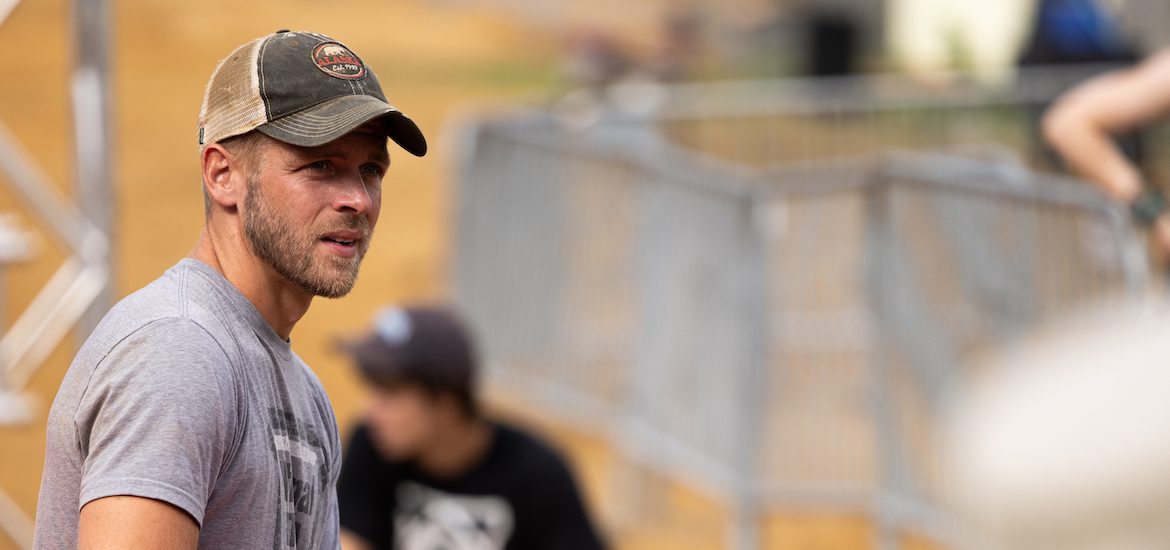
Editor reviewed & updated October 2025. Chris Wilczewski is a Rowan University 2015 alumnus who majored in marketing. Chris is the founder and chief operating officer for the World Ninja League, “home of the world’s leading obstacle course organization.” He discusses how he founded the company, his involvement in ninja competitions, his origin story and […]
- Alumni
- ...
Alumni Shaun Pierson ’19: MFA Candidate at Yale

Shaun Pierson (he/him) is a Rowan University 2019 graduate who majored in Radio/TV/Film. He currently lives in New Haven, Connecticut, but during his time at Rowan, lived on campus as an RA. His work has been featured at the Midwest Center for Photography, the Southern Alleghenies Museum of Art, the Foley Gallery (NYC), Vogue Italia, […]
Ricardo Oropeza’s Rise From 2019 Graduate to Sony Music Analyst
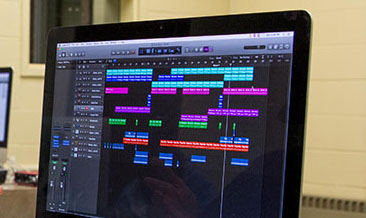
Why did Rowan stand out for you and your college search? Rowan stood out to me for a few main reasons. The first way was through word of mouth. In my high school in Randolph and my graduating class, we had six people attending Rowan. As someone with no family members who have been through […]
Successful Alumnus On Where Computer Science Can Take You

Joseph Albanese of Gloucester County, NJ is a 2021 Rowan University alumnus who majored in Computer Science. Joseph works for the company Freefly Systems as a software engineer for the organization’s Alta X drone technology. Whether that be through dealing with maintenance on the front and backend of coding on drones, Joseph Albanese is a […]
Innovation Fund Winners Mike Lombardo & Kayvon Jahanbakhsh

Alumni Success Stories Explore how our alumni propel their Rowan University education into lasting success, as highlighted through our alumni success series. From Rowan University student to lifelong member of the Rowan University Alumni Association, Rowan Profs thrive at every stage of their journey. Go Profs!
- Alumni
- ...
Alumni Spotlight: Isaiah Showell ‘15, Multimedia Journalist

Isaiah Showell of Atlantic County has hosted and produced more than 100 videos spotlighting the people, places and programs of South Jersey communities for the series “What’s Good,” which he founded in 2017. Isaiah, who graduated with a Journalism degree from the Ric Edelman College of Communication and Creative Arts, shares his own South Jersey […]
Alumni Spotlight: Catherine Chambers ’16 Music Degree

What made you choose Rowan? What made you choose music? When I first started exploring colleges as a senior in high school, I really wanted to move far away from New Jersey and find my own way. I was set on not going to a state school, but I humored my mother and decided to […]
Alum Lia Boncouer ’20 Joins U.S. Navy Fleet Bands

Today, we feature Lia Boncouer, who graduated from Rowan’s Music Performance program with a concentration in Clarinet Performance. Currently, Lia is completing her Master of Music degree at the University of Michigan. She discusses her undergraduate experience at Rowan, her journey to becoming a Music Performance major, and shares details on her recent acceptance of […]
Melissa Miller ’02 and Dental Tech

Alumni Success Stories Explore how our alumni propel their Rowan University education into lasting success, as highlighted through our alumni success series. From Rowan University student to lifelong member of the Rowan University Alumni Association, Rowan Profs thrive at every stage of their journey. Go Profs!
Your Travel Guide to Visiting Glassboro, Home to Rowan University

This post was reviewed for accuracy and revised October 2025. As shared by the New Jersey Division of Travel & Tourism, in 2024 Smithsonian Magazine named the town of Glassboro, New Jersey one of the best small towns to visit. Whether you’re coming from up the road, down the shore, Central Jersey, or out-of-state, find […]
Alumni Success: Matt Ruiz ’10 on ROTC and Career

Matt Ruiz, a CPT Exercise Planning Officer, used his Armed Services Assistance ROTC Scholarship to earn a liberal studies degree, which helped him build life skills that he now uses as an office in the United States Army. “I would say that the biggest thing, getting the scholarship and doing the ROTC program here, it […]
Dr. Janelle Alexander Champions DEIB in Schools

Alumni Success Stories Explore how our alumni propel their Rowan University education into lasting success, as highlighted through our alumni success series. From Rowan University student to lifelong member of the Rowan University Alumni Association, Rowan Profs thrive at every stage of their journey. Go Profs!
Alumni Success: Aeberli Begasse ’19 Strives For A Healthy Community [VIDEO]

Aeberli Begasse, a 2019 Rowan graduate of the Health Promotion and Wellness Management program, works as a tobacco program coordinator, educating and helping the community kick the habit. “When I went to Rowan, I had the opportunity to explore other possibilities, and I was fortunate enough to find a career that fit more of what […]
Alumni Success: Felicia Brown Talks Career, Future Goals and Her M.A. in Arts Administration

Alumni Success Stories Explore how our alumni propel their Rowan University education into lasting success, as highlighted through our alumni success series. From Rowan University student to lifelong member of the Rowan University Alumni Association, Rowan Profs thrive at every stage of their journey. Go Profs!
Alumni Success: Byron Bustos Tells It All!

Alumni Success Stories Explore how our alumni propel their Rowan University education into lasting success, as highlighted through our alumni success series. From Rowan University student to lifelong member of the Rowan University Alumni Association, Rowan Profs thrive at every stage of their journey. Go Profs!
Strategic Communication Grad Nadya Ramos

Alumni Success Stories Explore how our alumni propel their Rowan University education into lasting success, as highlighted through our alumni success series. From Rowan University student to lifelong member of the Rowan University Alumni Association, Rowan Profs thrive at every stage of their journey. Go Profs!
Alumni Success: Chemical Engineer Jennifer Roddy

Alumni Success Stories Explore how our alumni propel their Rowan University education into lasting success, as highlighted through our alumni success series. From Rowan University student to lifelong member of the Rowan University Alumni Association, Rowan Profs thrive at every stage of their journey. Go Profs! Internship & Experiential Learning Stories Learn how Rowan Profs […]
Alumni Success: Julia Reilly, Chemical Engineer at Dupont

Alumni Success Stories Explore how our alumni propel their Rowan University education into lasting success, as highlighted through our alumni success series. From Rowan University student to lifelong member of the Rowan University Alumni Association, Rowan Profs thrive at every stage of their journey. Go Profs! Internship & Experiential Learning Stories Learn how Rowan Profs […]
Alumni Success: Mitch McDaniels on Finding Your “WHY”

Alumni Success Stories Explore how our alumni propel their Rowan University education into lasting success, as highlighted through our alumni success series. From Rowan University student to lifelong member of the Rowan University Alumni Association, Rowan Profs thrive at every stage of their journey. Go Profs!
Profs Abroad: Stephanie in Paris (and Other Parts of France)

Alumni Success Stories Explore how our alumni propel their Rowan University education into lasting success, as highlighted through our alumni success series. From Rowan University student to lifelong member of the Rowan University Alumni Association, Rowan Profs thrive at every stage of their journey. Go Profs!
In Case You Missed It: Top 10 Most Popular Blog Posts This School Year!

Today, we will share our top 10 most popular stories from the blog for the 2020-21 school year. If you missed any of these great stories, be sure to check them out!
1. Alumni Success: New Jersey State Police Sergeant Danyel Barnes

“Danyel Barnes, a 1994 alumnus, shares his Rowan story and how it shaped his life today as a Sergeant with the New Jersey State Police.”
2. How to Apply for Scholarships at Rowan University

“Admissions counselor Amanda Kuster explains how scholarships work at Rowan and shares how prospective students can earn more money for college. “
3. TRANSFERmation Tuesday: Future Chemistry Teacher Trevor Jones

“In this story, we feature Trevor Jones, a senior first-generation college student majoring in chemistry education. Trevor transferred his junior year and is from Trenton, NJ (Mercer County). He is a resident assistant at the Nexus apartments and is involved with various clubs such as rugby, Men of Color Alliance (MOCA), and Student Organization for Caribbean Awareness.”
4. Alumni Success: Teacher and Soror Kathleen Gordy-Mathis

“Kathleen Gordy-Mathis, an alumna and current preschool teacher, tells us about her amazing experiences since graduating. Kathleen graduated with a bachelor of arts degree in Communications with a specialization in Public Relations in 1990.”
5. TRANSFERmation Tuesday: Studio Art Major Christine Stewart

“In this story, we welcome Christine Stewart, a transfer student from Cumberland County College. They are a junior majoring in Studio Art with a specialization in Graphic Design from Pennsauken, NJ (Camden County). They are also involved in Prism, Queer People of Color (QPOC), and Women of Westby.”

“Meet Dr. Susana C. Santos, assistant professor of Management and Entrepreneurship within the Rohrer College of Business. Rowan Global Learning and Partnerships awarded Dr. Santos its Excellence in Online Learning faculty award last year. Learn more about Dr. Santos, her teaching, and how she created an inventive, daily exercise to build online engagement with her students.”
7. Alumni Success: Student-Athlete, Trailblazer Brad K. Leak

“In this story, we feature alumnus Brad K. Leak ’94, who earned a bachelor of science degree in Business with a specialization in Accounting. He also led the men’s Track & Field team as captain from 1991 to 94. As a three-time all-American champion, Brad wisely balanced the many responsibilities of being a student, an athlete, and a leader.”
8. The Importance of Unstructured Time

“This article is part of a running series with Rowan University’s Healthy Campus Initiatives. This collaboration aims to educate students about personal well-being options.” Landyn Bacanskas, a Biomedical Engineering major, wrote this piece on the power of a “mental recess break.”
9. 7 Dance Majors Share How Their Degree Supports Their Dreams and Goals

“Seven Dance majors share how they’re dreaming big and how their degree is going to get them there.”

“In this article, we speak with Yashaswi Parikh, cofounder, and co-president of the Rowan South Asian Students Association as well as sunshine chair of Alpha Phi Omega (APO). As sunshine chair, she works to bring joy and happiness to the organization! Yashaswi is a senior Biological Sciences major and Spanish minor who is part of the 3+4 BS/DO program and the Bantivoglio Honors Concentration. She calls Monroe Township in Middlesex County her hometown.”
Like what you see?
Stories and Photos by:
Various Digital Content Contributors from the Rowan Blog
Post by:
Rachel Rumsby, junior communication studies and public relations double major
Alumni Success: Michael A. Wilson Jr., Marketing Operations Specialist for SHI International Corp.

What have you learned by working as a Marketing Operations Specialist for SHI International Corp.? What were your initial visions for pursuing an undergrad in Public Relations and then a graduate degree in Data Marketing Communications? I would say SHI has been my saving grace. I have been at this company since I have graduated […]
Alumni Success: Stephanie Ibe and How She Became a Teaching Assistant in France

Today we speak with Stephanie Ibe, a 2020 graduate who majored in Biological Sciences with a minor in French and Honors and Pre-med concentrations. Stephanie stayed in Le Havre, France for seven months while working as a teaching assistant through the TAPIF Program. Stephanie comes from Franklin Park, NJ in Somerset County. She was involved […]
- Alumni
- ...
Alumni Success: Rowan Graduates Take Over the Eagle Theatre

Alumni Success Stories Explore how our alumni propel their Rowan University education into lasting success, as highlighted through our alumni success series. From Rowan University student to lifelong member of the Rowan University Alumni Association, Rowan Profs thrive at every stage of their journey. Go Profs! Like what you see? LEARN MORE Story and photos […]
Alumni Success: Photography Studio Owner Gabi Previtera

Alumni Success Stories Explore how our alumni propel their Rowan University education into lasting success, as highlighted through our alumni success series. From Rowan University student to lifelong member of the Rowan University Alumni Association, Rowan Profs thrive at every stage of their journey. Go Profs!
Alumni Success: Ryan Geiger, Creative Media Business Owner and Accomplished Filmmaker

Alumni Success Stories Explore how our alumni propel their Rowan University education into lasting success, as highlighted through our alumni success series. From Rowan University student to lifelong member of the Rowan University Alumni Association, Rowan Profs thrive at every stage of their journey. Go Profs!
Advice from Cannes Festival Award-Winning Filmmaker to Radio/TV/Film Majors

Alumni Success Stories Explore how our alumni propel their Rowan University education into lasting success, as highlighted through our alumni success series. From Rowan University student to lifelong member of the Rowan University Alumni Association, Rowan Profs thrive at every stage of their journey. Go Profs!
Rowan Alumna Shares Advice with Future Profs

Internship & Experiential Learning Stories Learn how Rowan Profs go Beyond the Classroom to grow professionally, as well as personally, through internships and other experiential learning. Experiential learning includes hands-on learning opportunities provided through research, student clubs, campus leadership, student worker jobs, service-learning projects and volunteerism. In addition, Rowan’s Office of Career & Professional Development provides career support that’s more than just […]
Alumni Success: Nah’Ja Washington Shares How Rowan Helped Her Succeed In The Advertising Industry

What are some of your responsibilities at DDB? I have a lot of different responsibilities. One of them is being aware of different trends and what’s going on in the market and creating a newsletter with my manager to keep her up to date on those things. I also, as the junior strategist, essentially do […]
Leading Innovation: Rowan Engineering, MBA Grad Brandon Graham Launches Startup Venture, Mentors Future Entrepreneurs

Today we feature Brandon Graham, a recent graduate of Rowan Global’s Master of Business Administration program. Brandon co-founded the company Arke Aeronautics while still an undergraduate Mechanical Engineering student at Rowan. Learn more about Brandon, his business and his contributions to the Rowan community. Brandon Graham defined his own education at Rowan. Now, as a […]
Alumni Success: HR Professional Lonniece Senior Shares Stories, Wisdom, Brilliance

Lonniece Senior works for Quality Packaging Specialists International, LLC as a lead Human Resources Specialist. She graduated from Rowan in 1997. She has since earned two master’s degrees — one in Business Administration and one in Philosophy in Management. Alumni Success Stories Explore how our alumni propel their Rowan University education into lasting success, as […]
Alumni Success: Student-Athlete, Trailblazer Brad K. Leak

Alumni Success Stories Explore how our alumni propel their Rowan University education into lasting success, as highlighted through our alumni success series. From Rowan University student to lifelong member of the Rowan University Alumni Association, Rowan Profs thrive at every stage of their journey. Go Profs!
Alumni Success: New Jersey State Police Sergeant Danyel Barnes

Alumni Success Stories Explore how our alumni propel their Rowan University education into lasting success, as highlighted through our alumni success series. From Rowan University student to lifelong member of the Rowan University Alumni Association, Rowan Profs thrive at every stage of their journey. Go Profs!
Rowan Alum, Aspiring Professor Continues Education in Criminal Justice Graduate Studies

A prospective career change brought Marlo Rossi back to Rowan and on a brand-new professional path in the university’s Criminal Justice master’s degree program.
Marlo, from Gloucester County, NJ, transferred to Rowan and earned her bachelor’s degree in Political Science in 2019. She graduated with her sights set on law school. Through substitute teaching in public schools, Marlo found a new calling that drew from her civil service knowledge base and interests in both education and the justice system.
Her future goals now include completing not one but two advanced academic degrees.

“I thought I was going to get my four-year degree and then go right into the workforce or go to law school,” Marlo says. “But this program has allowed me to learn more in-depth information about a subject that I was interested in initially. This has really narrowed that focus on what I want to do.”
Just one semester in, Marlo says she loved the program from the first class she had.
“I left with a sense of pride in knowing I’m going to continue to learn more. It’s only my first semester; it that was that good, I can’t wait for the rest,” she adds.
Rowan offers both face-to-face and fully online criminal justice master’s programs for adults returning to college. Enrolled in the on-campus experience, Marlo says she prefers face-to-face courses — though COVID-19 shifted how she took classes in the spring 2020 semester.
“With the pandemic, I had to go online. I prefer the interaction with the professors and with other students in the program. I like that interaction. I was homeschooled my whole life, so I was used to the online, at-home kind of schooling. But I’d prefer face-to-face,” she says.

“Getting to know people” in smaller classes, on a close-knit campus with restaurants and nightlife, are a few things that initially drew Marlo to Rowan as an undergraduate — and still do. Now, the graduate program affords her a work-life balance she enjoys.
“I like that the program was only one day a week. It was later in the afternoon, so you could work during the day, which I really liked because I would [teach] in the afternoon and go to school at night,” she says.
Marlo’s advice for prospective students is to be ready to work hard and be prepared to learn a lot in “such a short time.”
“For instance, I started with only two classes, and the amount that I’ve learned in terms of writing and critical thinking, has been mind-blowing,” she says.
Her long-term goal is to pursue a Ph.D. in an interdisciplinary program blending political science and criminal justice. After she earns her master’s degree, she hopes to become “an adjunct [professor] at Rowan so that I could give back to the school I’ve learned so much from.”

Like what you see?
LEARN MORE
#KeepinLocalOpen: Printmaking & Illustration Alum Supports Small Businesses Like Her Own During COVID Crisis

Alumni Success Stories Explore how our alumni propel their Rowan University education into lasting success, as highlighted through our alumni success series. From Rowan University student to lifelong member of the Rowan University Alumni Association, Rowan Profs thrive at every stage of their journey. Go Profs! Internship & Experiential Learning Stories Learn how Rowan Profs […]
Alumni Success: Psychology Major Natalie Torres


Today, we speak to Natalie Torres, from Morris County, NJ, who is a Rowan alumna. She graduated with a Psychology undergraduate degree in May 2016 and then earned her master’s degree in Applied Behavior Analysis (ABA) in August 2018.
We speak to Natalie about why she originally chose Rowan and how Rowan has prepared her for her success as a child psychologist and her current pursuit in becoming a board-certified behavior analyst.
“I originally chose Rowan because I felt like I would not be just another number. The size of campus and the size of the classes were perfect for me. I didn’t have to take a packed bus to different locations just to get to class, and everything was close by.”
Natalie also had heard that Rowan had a great Psychology program. She instantly knew that with the distance, size, affordability and the great reputation, that this was the school for her.
“I always knew from a young age that I had wanted to go into psychology. So many people would come up to me asking me for advice, I enjoyed helping them and working through their problems. I find psychology to be extremely fascinating and helpful! When it came time to start thinking about college and what route I wanted to take, I discussed the possibilities with a teacher of mine. I told her I wanted to go into psychology but more specifically, I wanted to work with children who have autism.”
 Natalie feels passionate about helping the education, growth and development of children with disabilities and behavioral disorders.
Natalie feels passionate about helping the education, growth and development of children with disabilities and behavioral disorders.
“Autism hits close to home for me and my family. So when she told me that Rowan had an applied behavior analysis concentration and a master’s program as well, I knew that Rowan was where I needed to be!”
When Natalie wasn’t studying Psychology in her classes, she was pushing her education even further with her on-campus job.
“I first worked for the payroll services at Rowan, then the Rowan mailroom for two more years after that. Then, I finally began working as a research assistant for my professors in the ABA program. During my master’s, I worked for the ABA center as well.”
However, Natalie admits, she has had her fair share of obstacles during her time as a college student.
“The biggest thing I had to overcome was my time management skills. Once I knew that I had successfully gotten into the master’s program, I knew that I had to juggle doing hours of research, staying on top of my classes and doing my assignments on time. Time management was essential for me!”
Natalie has achieved so much during her time at Rowan, so we had to ask, did the future seem bright?
“Throughout my time at Rowan, I was fortunate enough to have amazing professors who were willing to help me at any time. My professors were extremely credible and well-known in the field, so that gave my classmates and I the advantage of receiving great advice and mentoring. I not only felt prepared, but extremely confident that I would succeed!”
Natalie was not only successful in finding a great education at Rowan, but she also made an amazing connection and relationship too.

“I believe Rowan has not only prepared me, but also my boyfriend of seven years, Gene.”
Natalie’s boyfriend, Gene Maier, is also a Rowan alumnus with two degrees in accounting and finance. He now works for the accounting firm Baker Tilly in Philadelphia.
Natalie shares: “Rowan has really helped us both in building our careers. Currently, I’m working for a specialized school for children with disabilities in their autism campus. There, I work with children from various locations ranging from toddlers to adolescents. We bought our first house a year and a half ago here in Cherry Hill. We also got our first dog together too, Carsen!”
While Natalie has so much success around her currently, we still wanted to know what she has planned for the future.
“I’m currently working on taking the test to get my BCBA certification. Once I become a board-certified behavioral analyst, I can continue to help and support so many more families and children.”
Like what you see?
Story and photography by:
Bianca Torres, junior music industry major
Alumni Success: Chemical Engineering Major Brad Johnson

Alumni Success Stories Explore how our alumni propel their Rowan University education into lasting success, as highlighted through our alumni success series. From Rowan University student to lifelong member of the Rowan University Alumni Association, Rowan Profs thrive at every stage of their journey. Go Profs!
Music Education Grad Shares His Insight & Advice
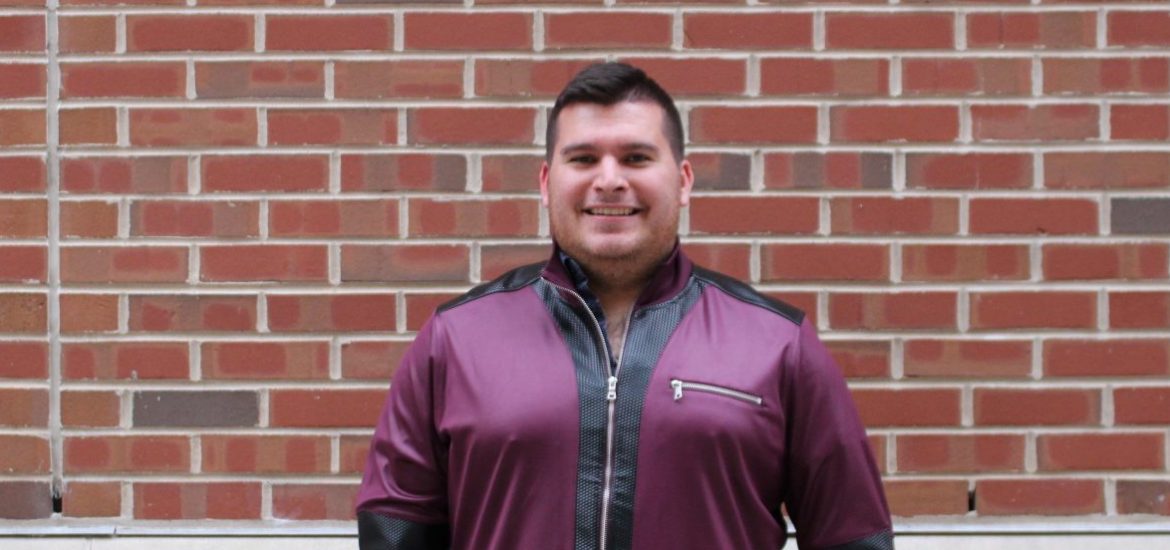
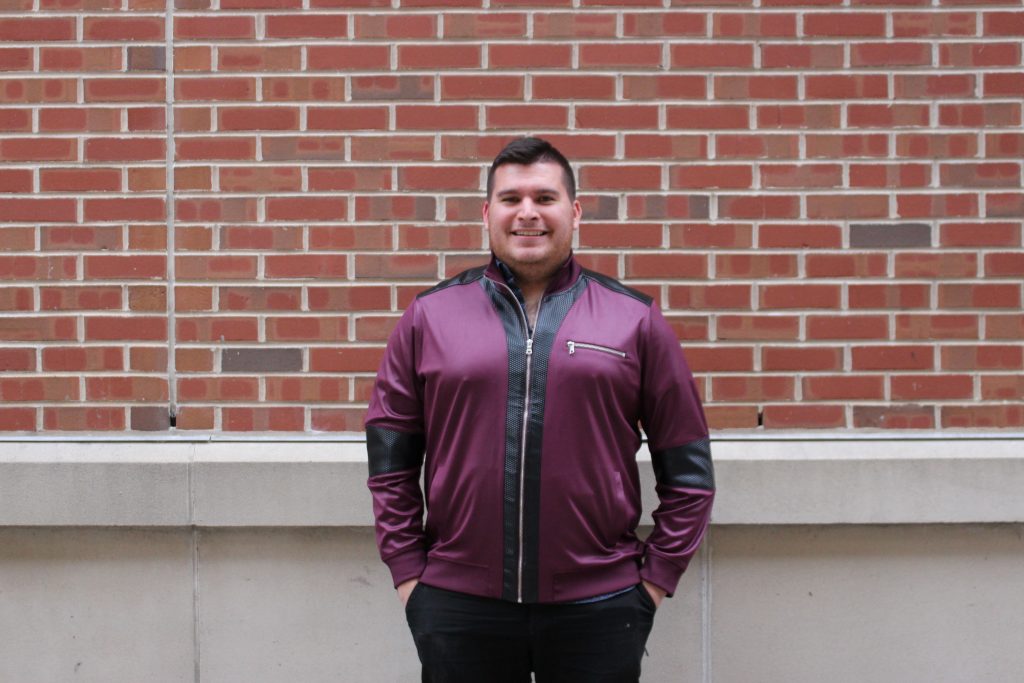
Welcome to Rowan at Home, our new series to give you a glimpse into Rowan University, our campus culture, and the lives of our students, while we’re practicing social distancing to protect society from the spread of COVID-19. Today’s story features alumnus Sean Clancy, and was captured by senior Iridian Gonzalez, journalism, before quarantine.
Meet Sean Clancy, a 2014 graduate from the College of Performing Arts. Sean earned his bachelor’s in music education and a minor in dance studies. He teaches general music to elementary students, while singing professionally around the country as well. Today he will share with us his journey in becoming a music teacher and what he learned throughout the process.
How did you know you wanted to pursue a career in music and 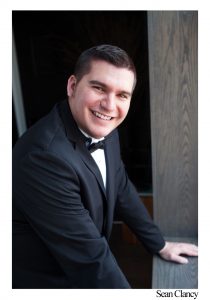 education?
education?
“In high school I did New Jersey All-State and Regional chorus, it was just really inspiring. I was inspired by the people who conducted it and I always knew I wanted to get into education I always knew I wanted to be a teacher. I noticed how it [music] affects your grade. It gives you a sense of responsibility and time management. And you’re always working in a team, it’s not a one-person thing, it’s about everyone succeeding.”
How did you like Rowan’s music and education departments?
“It was amazing, they have one of the best education departments in the country. I feel like we got so much experience with kids. From my freshman year we were working with kids and watching teachers. That’s what I like, the moment you are here you’re in the game.”
Sean said he liked how his first courses for music education all started at 8 a.m. because he said that if you can’t handle waking up that early to go to class then how are you going to wake up that early to teach.
“I have to be at work at 7:30, which means I’m up at 6. So, if you can’t handle getting to class by 8 you can’t handle being a teacher.”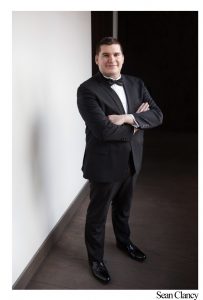
What does a typical day at work look for you?
“Now with my elementary job my day starts at 10 and ends at 3. I have a one in a half hour lunch break and that’s it. I have duty at 8:20 and I am on duty until 8:50. Then from 8:50 to 10 I either have a meeting with my team or have prep time. Right now, we are in the spring concert mode, so we are learning the spring concert music and I love doing music from different languages, because that’s what I learned here [Rowan]. My third graders are doing a song in Japanese and my second graders are doing Nigerian. I find that kids are connecting. They might not like all the songs, but even if they like one part of one song then they will be in it for that.”
Any advice for students wanting to major in music education?
“They always tell you to take the job you get, if you get it just be grateful, 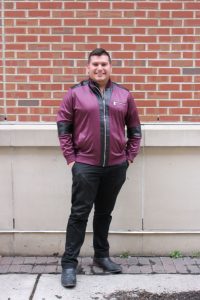 but they don’t tell you get the job your supposed to be in. My first job I got it at the wrong place. I left it mid-year; I didn’t like it. It was my first interview after college, and I got the job. I was like ‘dream job amazing’ but I had no support and I was doing too much, I was 22 teaching high school. I took the job, but that job wasn’t right for me, but of course I don’t regret it because I learned a lot and learned about myself. Learned how to get right up when you hit rock bottom. A year later I started working a part-time job in Belmawr, my hometown, trying to revive their chorus program and through that process I learned that I am a good teacher and that I could make an impact in kids and that I was just in the wrong place. Since then I’ve been a full-time teacher.”
but they don’t tell you get the job your supposed to be in. My first job I got it at the wrong place. I left it mid-year; I didn’t like it. It was my first interview after college, and I got the job. I was like ‘dream job amazing’ but I had no support and I was doing too much, I was 22 teaching high school. I took the job, but that job wasn’t right for me, but of course I don’t regret it because I learned a lot and learned about myself. Learned how to get right up when you hit rock bottom. A year later I started working a part-time job in Belmawr, my hometown, trying to revive their chorus program and through that process I learned that I am a good teacher and that I could make an impact in kids and that I was just in the wrong place. Since then I’ve been a full-time teacher.”
Sean said that when you’re a musician your teachers become like your parents; they guide you through on how to make your instrument the best it can be.
“There’s such a special connection.”
Like what you see, come visit us!
Story by:
Iridian Gonzalez, senior journalism major
Photos courtesy of:
Sean Clancy/Jamie Jung Photography
- Alumni
- ...
Alumni Success: Staff Engineer for Hershey Company’s Reese Plant Christopher D

Alumni Success Stories Explore how our alumni propel their Rowan University education into lasting success, as highlighted through our alumni success series. From Rowan University student to lifelong member of the Rowan University Alumni Association, Rowan Profs thrive at every stage of their journey. Go Profs!
From ‘Sister of Justice’ to Court Service Supervisor

Alumni Success Stories Explore how our alumni propel their Rowan University education into lasting success, as highlighted through our alumni success series. From Rowan University student to lifelong member of the Rowan University Alumni Association, Rowan Profs thrive at every stage of their journey. Go Profs!
- Alumni
- ...
Where is He Now? Computer and Electrical Engineering Grad Becomes COO

Alumni Success Stories Explore how our alumni propel their Rowan University education into lasting success, as highlighted through our alumni success series. From Rowan University student to lifelong member of the Rowan University Alumni Association, Rowan Profs thrive at every stage of their journey. Go Profs!
Full-Circle Moment: Communications Alumna Finds New Role at Rowan as Parent Advocate

Alumni Success Stories Explore how our alumni propel their Rowan University education into lasting success, as highlighted through our alumni success series. From Rowan University student to lifelong member of the Rowan University Alumni Association, Rowan Profs thrive at every stage of their journey. Go Profs!
Higher Education Master’s Program Sounds Like Sweet Success For Rowan Music Alum Ben W

Future college students will be fortunate to have Ben W as their academic advisor.
The Gloucester County native and aspiring academic counselor, who will complete his master’s degree in the College of Education’s Higher Education track this spring, didn’t initially set his sights on the program until his own interaction with an advisor.
“He’s been nothing but a huge help during the undergraduate process,” Ben says. “I want to give back because of my experiences in the undergraduate setting.”
 Ben graduated magna cum laude from Rowan’s highly competitive Music program after what he revealed was a difficult transition to college life as a student with disabilities. He’s now empowered to “inspire students with disabilities to stay in college, so they can break obstacles to get where they need to go in the college setting because I’ve broken every obstacle up until this point,” Ben explains.
Ben graduated magna cum laude from Rowan’s highly competitive Music program after what he revealed was a difficult transition to college life as a student with disabilities. He’s now empowered to “inspire students with disabilities to stay in college, so they can break obstacles to get where they need to go in the college setting because I’ve broken every obstacle up until this point,” Ben explains.
Ben says he wouldn’t be in college without a love of music, for which he’s a triple threat in voice, guitar and piano. He had just graduated from high school to pursue music at Rowan when the overwhelm set in.
“I overcame it that first semester, and my entire undergraduate years I got help when I needed it and asked for assistance for the resources I need to obtain, like the Disability Resources office [also called the Academic Success Center] or academic coaching or my professors,” Ben says. “I always say to have connections with your professors. I feel like this transition showed me that it’s a lot different.”
After his first semester, Ben, working with the Academic Success Center, met regularly with his academic coach, who he says honed his writing, editing and organizational skills.
He also registered with the Testing Center, which he says helped him with both test-taking and studying. The Testing Center was “welcoming and allowed me to do my tests and quizzes in a quieter space,” Ben adds.
 Ben’s academic career flourished after that first semester. He joined the Delta Alpha Pi Honor Society and Sigma Alpha Lambda, a national leadership honor society. He presented at Rowan’s College Prep Transition Conference, which offers workshops and tools to support students with disabilities and their families as they head toward college life.
Ben’s academic career flourished after that first semester. He joined the Delta Alpha Pi Honor Society and Sigma Alpha Lambda, a national leadership honor society. He presented at Rowan’s College Prep Transition Conference, which offers workshops and tools to support students with disabilities and their families as they head toward college life.
His own advising experience, along with the guidance he received through the Academic Success Center, pivoted Ben’s career path from music to counseling. He’s applying his graduate coursework to an internship this year with the Academic Success Center, working with students who may be struggling as he once was — which speaks to why he’s so passionate about his future career:
“I really was inspired by how much I have learned in the college setting, the resources I used to succeed in the college environment,” Ben says. He hopes to “help students advocate for themselves, making sure they do what they need to do to succeed. It’s not easy, but they’ve got to take one day at a time to break those obstacles.
“I’d like to help those students to keep going and never give up. Every student, no matter their differences are.”

Like what you see, come visit us!
Smaller Classes, Industry Connections Set Biochemistry Grad Jennifer C up for Success

Meet Jennifer C, a 2015 graduate from the College of Science & Mathematics. She is from Clarksboro, NJ (Gloucester County) and works for FMC Corporation, an agricultural sciences company, as an associate scientist doing formulations. Today, she will share with us her journey from her Rowan University experience to her work at FMC.
What inspired you to major in BioChem?
Initially when I started, I was pursuing teaching math. As I took courses, I felt like I needed something more. Then I switched to bio and then after that I was like, ‘I think this is OK.’
Then I saw biochemistry and said, ‘Wow, this is interesting.’ I switched to BioChem and I really loved it. I feel like at Rowan especially when I was here, it was much more chemistry based for biochemistry, which I really enjoyed and liked.
Why did you choose Rowan University?
I chose to come to Rowan because they offered smaller classes. I could get more information, it was more one-on-one. I know that for [larger schools] they have massive classes and I felt like I would have drowned, especially when I was first starting out because of my personality. I wanted something smaller, I didn’t want to get overwhelmed.
How has Rowan University impacted your life?
Rowan has given me more exposure — meaning, the people I have been connecting with, networking. When I was here at Rowan, I was under [Dr. Gregory] Caputo, he was my research adviser. It was my junior and senior year that I was in his research lab. In his research lab there were other students, and we all got really close. After college we all diversified, but we are still constantly learning from each other and meet up. Every person has their own industry experiences and we all talk about science. So, now post-college I still have all those connections and networks and still count with them.

How has Dr. Caputo impacted you?
I can’t even begin to say how much he has helped me. I think Dr. Caputo was my very first instance of how the industry actually works because there is a huge difference between academics and industry. By being in his lab, you get exposed to experiments that aren’t always going to work out 100% of the time, like they are supposed to. And I think that really helped me realize what to actually expect and to have that scientific mind of going through the process.
How well do you think Rowan prepared you to go into the industry?
I would say it prepared me in terms of knowing how to do research or how to figure out an answer. Academically it did prepare me for basic knowledge, but when you go out in the industry is a lot of how you figure out how you’re going to figure it out. So, I think Rowan helped me by knowing how to research a problem and how to figure it out.
What are you currently doing?
I work at FMC, and it’s an agricultural company. We make crop protection products like fungicide, insecticides and herbicides. Graduating college agriculture was nowhere on my list, I didn’t even know it was a thing. But then I got hired for a temporary position and I was under formulations. I got exposed to a lot of chemistry formulations and I absolutely fell in love with it.
What I tell a lot of people is yes, you want to enjoy your work, but find an environment where you are comfortable with the culture. It’s the people you work with and I feel like any job is 70% the people and 30% the job.
As a formulation chemist, what does your daily routine look like?
Recently, it has been going in really early, but it depends how much chaos happens during the day. The earliest I’ve gotten in, has been between 5:30 and 6 a.m. There have been times where I have been doing 80 to 90 hours a week. That is why you have to love what your doing.
My day consists of going in and checking emails, then I stay at the lab from sun up to sun down trying to get lots of things done. There’s formulation making, then physicals are performed on them, to see if they actually turned out the way you wanted them to be.
What is your favorite thing about Rowan or your favorite experience?
The people, and I think what I really loved was my research group. I would definitely recommend it to new students of biology and chemistry to join a research group, because that definitely has helped me a lot in the industry and it’s just great exposure to science.
Like what you see, come visit us!
Story by:
Iridian Gonzalez, senior journalism major
Ed.D. Graduate, Community College President on His Game-Changing Rowan Experience

Alumni Success Stories Explore how our alumni propel their Rowan University education into lasting success, as highlighted through our alumni success series. From Rowan University student to lifelong member of the Rowan University Alumni Association, Rowan Profs thrive at every stage of their journey. Go Profs!
Alumni Success: Health Promotion and Wellness Management Major Cory Bennett

“Rowan was actually my transfer institution. I went to another school for my first three semesters,” says Cory. “It was a liberal arts school, so I realized that it wasn’t the right place for me.” Cory had friends who attended Rowan and were raving about how they liked it. Since it was an in-state school, […]
First Disaster Preparedness & Emergency Management Graduate Reflects on His Rowan Experience

Internship & Experiential Learning Stories Learn how Rowan Profs go Beyond the Classroom to grow professionally, as well as personally, through internships and other experiential learning. Experiential learning includes hands-on learning opportunities provided through research, student clubs, campus leadership, student worker jobs, service-learning projects and volunteerism. In addition, Rowan’s Office of Career & Professional Development provides career support that’s more than just […]
“First Class” Graduate Howard Beder

Alumni Success Stories Explore how our alumni propel their Rowan University education into lasting success, as highlighted through our alumni success series. From Rowan University student to lifelong member of the Rowan University Alumni Association, Rowan Profs thrive at every stage of their journey. Go Profs!
Alumni Success Story: CEO Steve McKeon

Alumni Success Stories Explore how our alumni propel their Rowan University education into lasting success, as highlighted through our alumni success series. From Rowan University student to lifelong member of the Rowan University Alumni Association, Rowan Profs thrive at every stage of their journey. Go Profs!
- Alumni
- ...
Where is She Now? PCI Alumna and PR Grad Troi Barnes

Alumni Success Stories Explore how our alumni propel their Rowan University education into lasting success, as highlighted through our alumni success series. From Rowan University student to lifelong member of the Rowan University Alumni Association, Rowan Profs thrive at every stage of their journey. Go Profs!
Finance Major to Starting up His Own Marketing Agency

Alumni Success Stories Explore how our alumni propel their Rowan University education into lasting success, as highlighted through our alumni success series. From Rowan University student to lifelong member of the Rowan University Alumni Association, Rowan Profs thrive at every stage of their journey. Go Profs!
- Alumni
- ...
Communication Grad to CEO

Alumni Success Stories Explore how our alumni propel their Rowan University education into lasting success, as highlighted through our alumni success series. From Rowan University student to lifelong member of the Rowan University Alumni Association, Rowan Profs thrive at every stage of their journey. Go Profs!
- Alumni
- ...
Where Is He Now? Rowan Chemical Engineering Alumnus Theodore Cohen

Alumni Success Stories Explore how our alumni propel their Rowan University education into lasting success, as highlighted through our alumni success series. From Rowan University student to lifelong member of the Rowan University Alumni Association, Rowan Profs thrive at every stage of their journey. Go Profs!
Danielle’s Journey from the Ed.D. Program to Overseer of $20 Million

Meet Dr. Danielle B. Jubanyik, a Rowan alumna and Sicklerville, NJ (Camden County) native with her Ed.D. in educational leadership. Danielle is currently working at the New Jersey Department of Labor and Workforce Development as the State Director for Adult Education & Literacy Services. She is responsible for $20 million worth of funds that are […]
Journalism Alumnus Tells His Journey to His Dream Career

Alumni Success Stories Explore how our alumni propel their Rowan University education into lasting success, as highlighted through our alumni success series. From Rowan University student to lifelong member of the Rowan University Alumni Association, Rowan Profs thrive at every stage of their journey. Go Profs! Internship & Experiential Learning Stories Learn how Rowan Profs […]
Alumni PROFile: Cassie A. & Brandon L. of Cookie Munchers

We are #RowanPROUD and we are Rowan Profs! Not exactly sure what a Prof is? It’s our owl mascot, Whoo RU. Read about him here. Our series of alumni spotlight blogs feature Profs who have stayed connected to the Rowan community after graduation. Here we speak with 2016 graduates Cassie A. and Brandon L., who own […]
Alumni PROFile: Mike J., Anchor Moving & Storage

We are #RowanPROUD and we are Rowan Profs! Not exactly sure what a Prof is? It’s our owl mascot, Whoo RU. Read about him here. Our series of alumni spotlight blogs feature Profs who have stayed connected to the Rowan community after graduation. Here we speak with 1992 graduate Mike J., who now owns Anchor Moving […]
Alumni PROFile: Kari Janisse, Creative Juices by Kari

We are #RowanPROUD and we are Rowan Profs! Not exactly sure what a Prof is? It’s our owl mascot, Whoo RU. Read about him here. Our series of alumni spotlight blogs feature Profs who have stayed connected to the Rowan community after graduation. Here we speak with 2004 graduate Kari Janisse, who owns Creative Juices by Kari. […]

